Posted on October 17, 2010 by The Orwell Prize -

I am Alix Mortimer, head of state in the People’s Republic of Mortimer, where everything is perfect. I am a thinker-up and writer-down of things and southerner out of water, now living in Manchester. I started out as a postgraduate medievalist, then became a professional sub-editor and then a tax consultant (no, really) before I realised that having a Proper Career much less fun than thinking up and writing down. Now I work freelance as a copywriter, report writer and researcher, mainly for the third sector, and write the odd article on politics, history or genealogy in between times. Unnaturally interested in a number of things, including but not limited to history (policy-making, for the use of), local economics, heritage, language, armchair psychology and the future of political communication (we’ll look back on our current efforts and laugh, believe me).
Submitted blogposts
Other links
Posted on October 17, 2010 by The Orwell Prize -

An unprecedented insight into the grim brutality of the Russian revolution and the terror of the Cold War. On a midsummer day in 1937, the young Commissar Boris Bibikov kissed his two daughters goodbye and disappeared into the official Packard waiting outside. It was the last time his family ever saw him. Arrested by Stalin’s secret police, the loyal Party man confessed to a grotesque series of crimes against the Revolution. His wife, an Enemy of the People by association, was sent to the gulag, leaving the young Lyudmila and Lenina alone to face separation in a world turned suddenly cold. Lyudmila grew up a fighter, and when she fell in love with a tall young foreigner in Moscow at the height of the Cold War, she knew there would be further battles ahead. Naively infatuated with Russia, Mervyn Matthews had embarked on a dangerous flirtation with the KGB. But when finally asked to work for the organisation, he refused. Revenge came quickly: Mervyn was thrown out of the country; Lyudmila lost her job. For six years, stranded on opposite sides of the ideological divide that shaped their generation, they kept their love alive in a daily stream of letters – some anguished, some funny, but all suffused with a hope that they would eventually be reunited. Decades later, Owen Matthews pieces together his grandfather’s passage through the harrowing world of Stalin’s purges, and tells the story of his parents’ Cold War love affair through their letters and memories. Interspersed with the story of his family is his own journey as a young reporter in nineties Moscow. This is a raw, vivid memoir about a young man’s struggle to understand his parents’ lives and the strange country which ‘made us and freed us and very nearly broke us.’
Posted on October 17, 2010 by The Orwell Prize -
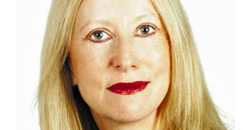
Mary Riddell is an assistant editor of the Daily Telegraph, where she is a columnist and political interviewer. A former deputy editor of Today, she has written for a number of national newspapers, including The Observer, on social, constitutional and foreign affairs, as well as covering criminal justice and Westminster politics. Her writing awards include Interviewer of the Year in the British Press Awards and a commendation in the feature-writing category. She has twice been named legal journalist of the year by the Bar Council and has previously been shortlisted for the Orwell Prize for Journalism (2008).
Submitted articles
Other links
Posted on October 17, 2010 by The Orwell Prize -

The Refuge and the Fortress deals with British attitudes towards people fleeing racial, religious or political persecution in their own country. Current prejudice against asylum seekers is not new. It echoes much of the rhetoric that greeted Jewish refugees from Tsarist pogroms at the turn of the 20th century, and those escaping Hitler in the 1930s. But this only tells half the story. As well as rejection and hostility, there has always been a characteristically British generosity and kindness towards those who have suffered cruelty and injustice. The book tries to make sense of these conflicting responses. At times, it seems, Britain offers a tale of two countries – the xenophobic and the open-hearted. The aim of the book is to make sense of these apparent contradictions, through direct testimonies of refugees and their descendants over the past 75 years. In doing so, we can also gain an insight into the elusive quality of what it means to be British – a question which is now at the centre of much social and political debate.
Posted on October 17, 2010 by The Orwell Prize -

Likely to touch on politics, business, economics, and music from punk rock to hard drivin’ rhythm & blues.
Submitted blogposts
Other links
Posted on October 17, 2010 by The Orwell Prize -
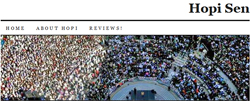
My name is Hopi Sen. Really. Escaping a lucrative career in advertising (which ended when I saw a lifetime of Daz adverts stretching before me and resigned in panic) I started work for the Labour party as the Northern region press officer in 2000. After the 2001 election I moved to Party HQ, before becoming the head of campaigns at the Parliamentary Labour Party. I had various stints on by-elections and General Elections- like working as a press officer to the Leader of the party during the 2005 campaign, a job that mostly involved feeding journalists chocolate and offending Quentin Letts. For six years I was one of those people who are occasionally glimpsed in the background of a photo-op, looking stressed in a cheap suit and in all likelihood sweating profusely. We’re a noble and maligned breed. Now I’ve escaped.
Submitted blogposts
Other links
- Hopi Sen
- Hopi Sen, Jo Glanville and Maajid Nawaz, ‘1984: Thoughtcrime’, Orwell Festival 2009
The triumph of the Tory Eurosceptics. Shannon Matthews, Family Breakdown and progressives. Fighting Back… That Cameron speech in Full The iconography of the angry rich man. Loving the whip. Cameron’s Neo-Hooverism 800 years or 42 days? Above all, try something. A progressive approach to Welfare reform?
Posted on October 17, 2010 by The Orwell Prize -

Eva Figes and her family fled the horror of Nazi Germany when Eva was only six, forced to leave behind them friends, relatives and their housemaid, Edith. Ten years later, Edith suddenly re-enters their lives. Having miraculously survived wartime Berlin, she had reluctantly emigrated to hostile, volatile Palestine. Recounting Edith’s story, Figes boldly argues that Israel was a product of US foreign policy and continuing and widespread anti-Semitism. Part memoir, part brave polemic, Journey to Nowhere is both a moving account of post-war displacement and a fierce attack on America’s role in the Middle East.
Posted on October 17, 2010 by The Orwell Prize -
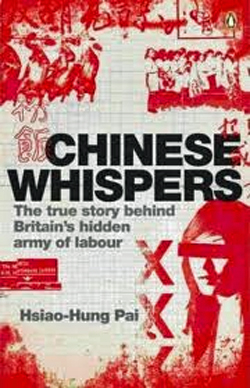
You know the people in this book. You’ll remember the harassed waitress from your local Chinese restaurant. You’ve noticed those builders across the street working funny hours and without helmets. You’ve eaten the lettuce they picked, or bought the microwave they assembled. The words ‘cockle-pickers’, ‘Morecambe Bay’, ‘Chinese illegals found dead in lorry’ will ring a bell. But did you know that there are hundreds of thousands of illegal Chinese immigrants in Britain? They’ve travelled here because of desperate poverty, and must keep their heads down and work themselves to the bone. Hsiao-Hung Pai, the only journalist who knows this community, went undercover to hear the stories of this hidden work force. She reveals a scary, shadowy world where human beings are exploited in ways unimaginable in our civilized twenty-first century. Chinese Whispers exposes the truth behind the lives of a hidden work force here in Britain. You owe it to yourself, and them, to read it.
Posted on October 17, 2010 by The Orwell Prize -

David Reynolds was shortlisted for a series of pieces on America, Empire of Liberty on BBC Radio 4 and BBC News Online. The Professor of International History at Cambridge University and a Fellow of Christ’s College, he is a regular visitor to the United States and has held visiting university appointments at Harvard, Nebraska and Oklahoma.
Submitted articles
Other links
Posted on October 17, 2010 by The Orwell Prize -
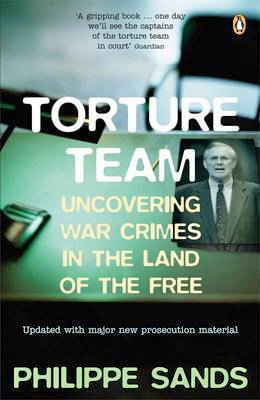
After 9/11. George W. Bush’s administration declared that they were going to have to work through ‘the dark side’. And they did: they turned their backs on international law and on America’s history of respecting human rights. They wanted only legal advice that made it okay to torture, and they made sure they got it. Voices of dissent were sidelined, while low level officials brainstormed interrogation techniques and took their lead from Jack Bauer in 24. In Torture Team, Philippe Sands tracks down and interviews those responsible, and makes a compelling case that, in an ugly blotch on Americda’s recent past, war crimes were committed for which no one has yet been held to account.
Posted on October 17, 2010 by The Orwell Prize -

Home of the Freedom Pass Anarchists and the wonderful world of professional wrestling, psychogeography, allotments and the class struggle. On the day that I retired from my final job as a lockkeeper I left the following on the wall. …… I started work at fifteen years of age Worked on the river and at sea but I also worked in factories and fields. In the circus and in films. I never achieved much. But I never crossed a picket line. Never judged a fellow worker by their colour or creed Nor sucked up to the bosses for my own ends….. Pretty much sums it all up.
Submitted blogposts
Other links
Posted on October 17, 2010 by The Orwell Prize -
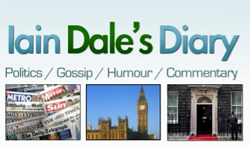
Iain Dale is one of Britain’s leading political commentators, appearing regularly on TV and radio. Iain is best known for his political blog, Iain Dale’s Diary, and football blog, West Ham Till I Die. He is a contributing editor and columnist for GQ Magazine, writes for the Daily Telegraph and a fortnightly diary for the Eastern Daily Press. He was the chief anchor of Britain’s first political internet TV channel, 18 Doughty Street.com and is a presenter on LBC Radio. He appears regularly as a political pundit on Sky News, the BBC News Channel, Newsnight, Radio 4 and Radio 5 Live. He is the publisher of the monthly magazine, Total Politics and the author or editor of more than twenty books. He is managing director of Biteback Publishing.
Submitted blogposts
Other links
- Iain Dale’s Diary
- Iain Dale, Peter Hitchens and Ed Vaizey, ‘What is the big Conservative idea?’ at the Sunday Times Oxford Literary Festival 2009
Posted on October 17, 2010 by The Orwell Prize -
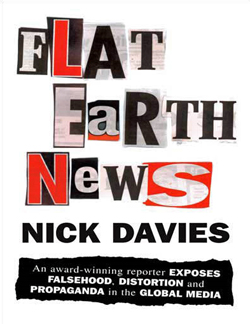
‘Finally I was forced to admit that I work in a corrupted profession.’ When award-winning journalist Nick Davies decided to break Fleet Street’s unwritten rule by investigating his own colleagues, he found that the business of reporting the truth had been slowly subverted by the mass production of ignorance. Working with a network of off-the-record sources, Davies uncovered the story of the prestigious Sunday newspaper which allowed the CIA and MI6 to plant fiction in its columns; the newsroom which routinely rejects stories about black people; the respected paper that hired a professional fraudster to set up a front company to entrap senior political figures; the newspapers which support law and order while paying cash bribes to bent detectives. Davies names names and exposes the national stories which turn out to be pseudo events manufactured by the PR industry, and the global news stories which prove to be fiction generated by a new machinery of international propaganda. He shows the impact of this on a world where consumers believe a mass of stories which, in truth, are as false as the idea that the Earth is flat – from the millennium bug to the WMD in Iraq – tainting government policy, perverting popular belief. He presents a new model for understanding news. With the help of researchers from Cardiff University, who ran a ground-breaking analysis of our daily news, Davies found most reporters, most of the time, are not allowed to dig up stories or check their facts – a profession corrupted at the core. Read All About It. The news will never look the same again.
Posted on October 15, 2010 by The Orwell Prize -

Friedrich Engels is one of the most attractive and contradictory figures of the nineteenth century. Born to a prosperous mercantile family in west Germany, he spent his career working in the Manchester cotton industry, riding to the Cheshire hounds, and enjoying the comfortable, middle-class life of a Victorian gentleman. Yet Engels was also the co-founder of international communism – the philosophy which in the 20th century came to control one third of the human race. He was the co-author of The Communist Manifesto, a ruthless party tactician, and the man who sacrificed his best years so Karl Marx could write Das Kapital. Tristram Hunt relishes the diversity and exuberance of Engels’s era: how one of the great bon viveurs of Victorian Britain reconciled his raucous personal life with this uncompromising political philosophy.
Posted on October 15, 2010 by The Orwell Prize -

To follow.
Posted on October 15, 2010 by Eric Blair -
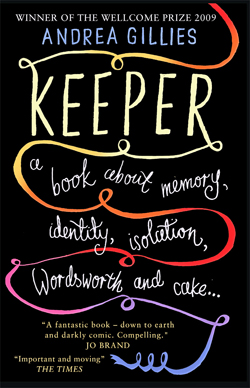
Can our personalities be taken away from us? Are memory and identity mutually dependent? What exactly is the soul? Three years ago, Andrea Gillies, a writer and mother of three, took on the care of her mother-in-law Nancy, who was in the middle stages of Alzheimer’s disease. This newly extended family moved to a big Victorian house on a headland in the far, far north of Scotland, where the author failed to write a novel and Nancy, her disease accelerated by change, began to move out of the rational world and into dementia’s alternative reality.
This book is a journal of life in this wild location, in which Gillies tracks Nancy’s unravelling grasp on everything that we think of as ordinary, and interweaves her own brilliantly cogent investigations into the way Alzheimer’s works. For the family at the centre of this drama, the learning curve was steeper and more interesting than anyone could have imagined.
Winner of the Orwell Prize 2010 and the inaugural Wellcome Prize 2009.
Posted on October 15, 2010 by The Orwell Prize -

Paul Lewis is Special Projects Editor for The Guardian. He was named Reporter of the Year at the British Press Awards 2010 and won the 2009 Bevins Prize for outstanding investigative journalism. He previously worked at the Washington Post as the Stern Fellow.
Submitted articles
Other links
Posted on October 15, 2010 by The Orwell Prize -

Peter Hitchens is a columnist and reporter for the Mail on Sunday, having previously reported from Moscow and Washington for the Daily Express. He has contributed to other publications, such as Prospect and The Guardian, authored documentaries on Channel 4 and the BBC, and appeared elsewhere on radio and television. Peter has also written a number of books, including The Rage Against God, The Cameron Delusion, The Broken Compass, The Abolition of Britain, The Abolition of Liberty and A Brief History of Crime.
Submitted articles
Other links
















